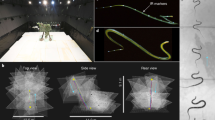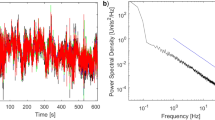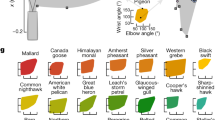Abstract
IN his most interesting paper, “Research on the Control of Aeroplanes”—published as a supplement to NATURE of May 12—Prof. Melvill Jones says, “they [the Wrights] must have experienced the stall or the approach to the stall.” In point of fact, during their gliding experiments of 1900 and 1901, they were puzzled by the fact that on a turn the warped wing would invariably touch the ground first, or in other words, they found, as modern science has rediscovered, that increasing the angle of the lower wing accentuates instead of curing the tendency to stall. Their remedy was to fit a vertical surface at the rear of the machine, which before the end of the 1902 experimental season was converted into a movable rudder. The point here is that the Wrights originally fitted a rudder not as a directional organ, but as an aid to the wing-warp in maintaining lateral balance.
This is a preview of subscription content, access via your institution
Access options
Subscribe to this journal
Receive 51 print issues and online access
$199.00 per year
only $3.90 per issue
Buy this article
- Purchase on Springer Link
- Instant access to full article PDF
Prices may be subject to local taxes which are calculated during checkout
Similar content being viewed by others
Author information
Authors and Affiliations
Rights and permissions
About this article
Cite this article
MARSH, W. Research on the Control of Aeroplanes. Nature 121, 939–940 (1928). https://doi.org/10.1038/121939b0
Issue Date:
DOI: https://doi.org/10.1038/121939b0
Comments
By submitting a comment you agree to abide by our Terms and Community Guidelines. If you find something abusive or that does not comply with our terms or guidelines please flag it as inappropriate.



